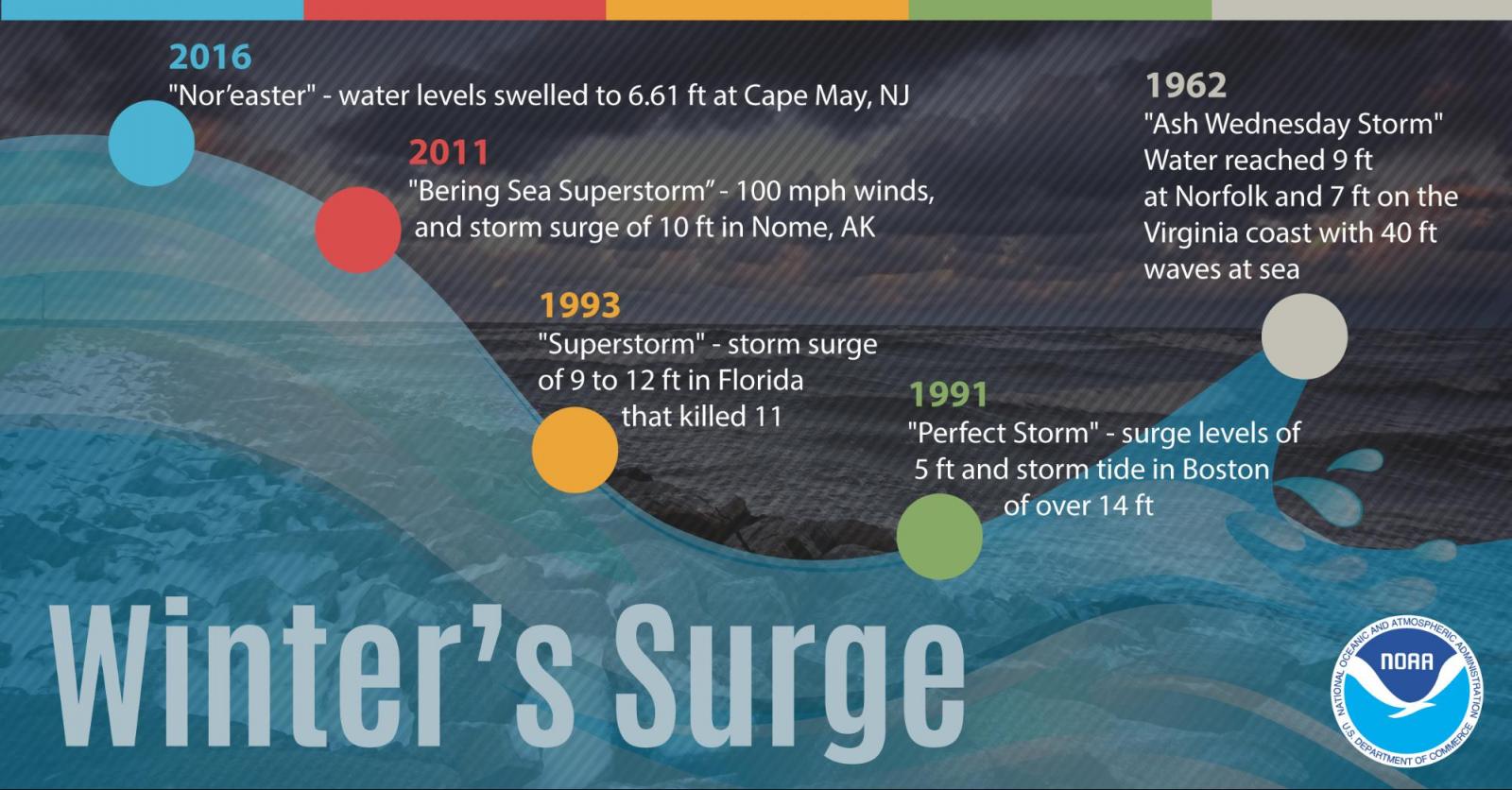Back to Winter Safety Articles
Longtime residents who live in US coastal communities know the danger of storm surge damage all too well. Sure, it’s the tropical storms and hurricanes that get named and categorized. However, if you ask those same coastal residents, ones who’ve experienced dozens of ocean storms, what their memories are of the most destructive storm surge events, you likely won’t hear them rattle off any hurricane names. It’s the large winter ocean storms that send a flood of bad memories.
Take January 2016 as an example. As a large and powerful blizzard blanketed much of the east coast with several feet of snow, the storm was churning up the ocean waters with tremendous ferocity, pushing massive amounts of water and waves toward the coast of New Jersey. At Cape May, NJ, it wasn’t the snowfall amounts that worried them. Water levels swelled to 6.61 feet, setting an all-time record for water level height and resulting in major coastal flooding. More record flood levels fell farther down the east coast as residents were left in awe at the amount of flooding that a winter storm caused.
Of course, hazards like storm surge are not restricted to impacting just one season. The storm surge threat is one that exists year round, with peaks in vulnerability depending on your location. Along the West Coast, large ocean storms are more common in December and January and can combine with astronomically high tides to amplify the storm surge threat.
 |
As with any natural hazard, there are always steps that can be taken in order to be properly prepared for the threat of storm surge.
Remember, just because you take a break from the ocean in the winter doesn’t mean the ocean takes a break from you! NOAA’s Storm Surge and Coastal Inundation has more information on storm surge, impacts, preparedness, and forecasts.